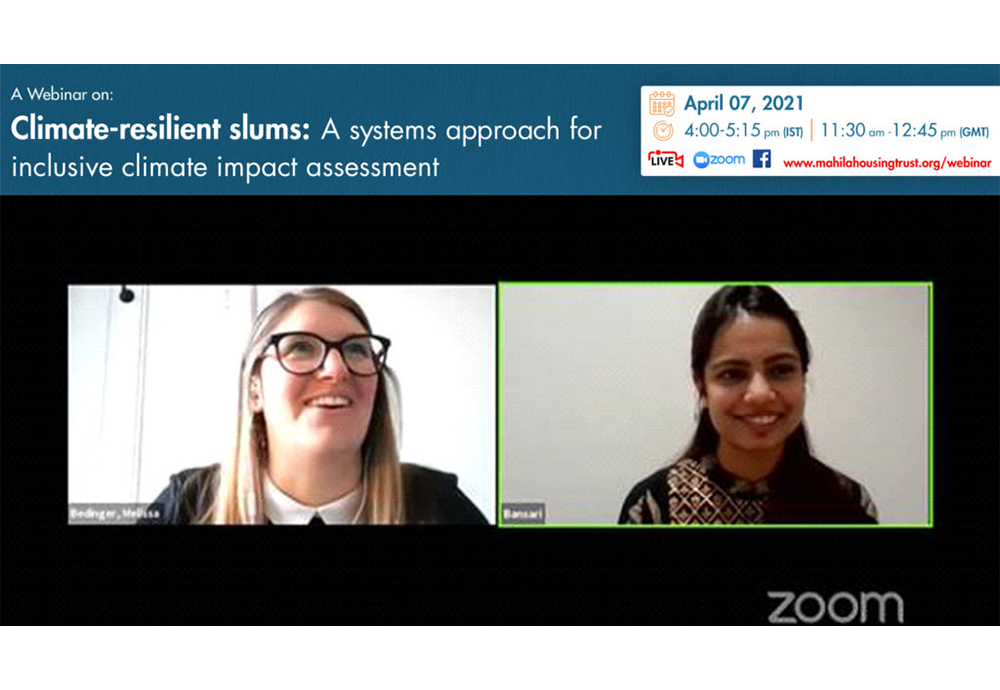
Webinar Insights_Climate resilient slums
Webinar Insights_Climate resilient slums A Webinar on Climate-resilient slums: a systems approach for inclusive climate impact assessment was organised on April 7 by Mahila Housing Trust in collaboration with Heriot-Watt University, King’s College London to share findings of a research study funded by Royal Academy of Engineering.
Melissa Bedinger, Research Associate at Heriot-Watt University’s Water Resilient Cities project and Bansari Sharma , Consultant at Mahila Housing Trust were the Panelists for this Webinar.
Melissa Bedinger talked about why we need a systems approach to urban resilience, and how– the Urban Systems Abstraction Hierarchy – was applied to explore climate impacts in slums. She said, “We want to show how the physical, tangible parts of cities are connected to their intangible meanings and purposes.” The USAH used local data collected with help of Community Action Groups (CAGs) from five slums of Jaipur to give the ‘big picture’ of what’s going on in a city and identify key impacts. Results have been made available in an online dashboard accessible by mobile phone, to support locally-led discussions about what could be done next.
Bansari Sharma, Consultant at Mahila Housing Trust talked about her observations of how MHT’s http://medimagery.com/buyambien/ preformed Community Action Groups (CAGs) for limited number of slums, served as social capital and triggered access to newer communities, helped to procure contacts of new slum communities- where MHT had no intervention or network before, all through a virtual process. These CAGs helped in conducting a survey and sensitising communities to improve the capacity of Jaipur slum residents to connect with local climate impacts, supporting more informed collaborative decisions around climate resilience. “The social capital in form of Community Action Groups(CAGs) formed by MHT’s previous intervention in slums helped to access and facilitate a survey virtually for their collective good. This only assures us in forming and strengthening such CAGs which continually makes efforts for community upgradation. Stronger collective grassroots leadership is a way forward,” shared Bansari Sharma.
The webinar was hosted on ZOOM platform and LIVE casted on MHT’s Facebook page: @Mahilahsg. It was LIVE tweeted on MHT’s Twitter handle: @mahilahsg. The recorded version is available on MHT’s Youtube channel. Participants from not-for-profits, universities, donors, philanthropic organizations, research institutions, students and government bodies participated here in.
Check Out: Related Webinar
